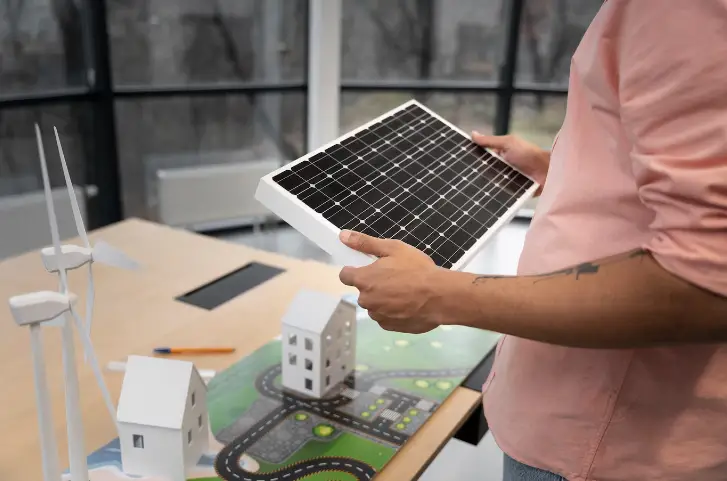Tapping into Solar Power: Efficiently Energize Your Home with Solar Panels

Solar energy has transitioned from a specialized niche to a widely adopted solution for home energy needs. As electricity costs climb and environmental concerns grow, an increasing number of homeowners are opting for solar panels to generate clean, renewable energy. But how exactly do solar panels work, and how can they effectively power your home? Let’s delve into the advantages and explore how to optimize this technology for your household.
How Solar Panels Generate Power
Solar panels, also known as photovoltaic (PV) panels, harness sunlight and convert it into electricity through a process called the photovoltaic effect. When sunlight strikes the solar cells, it energizes electrons, generating an electric current. This current is in the form of direct current (DC), which is then converted to alternating current (AC) by an inverter, making it suitable for use in your home.
Several factors influence the efficiency of solar panels, including the panel quality, the amount of sunlight in your area, and the orientation and angle of the panels. Today’s solar panels are highly efficient, with some models converting up to 22% of the sunlight they capture into usable electricity. Even less efficient panels can still lead to significant savings on your energy bills. For those interested in installing solar panels, Now EV install solar panels in Milton Keynes & Leighton Buzzard, providing expert services to help you harness the power of solar energy for your home.
The Advantages of Solar Power for Homeowners
- Lower Energy Costs
One of the most noticeable benefits of installing solar panels is the reduction in energy expenses. By producing your own electricity, you can drastically cut down on your dependence on the power grid, leading to lower monthly bills. In some instances, you may produce more electricity than you consume, enabling you to sell the surplus back to the grid and receive additional income or credits.
- Positive Environmental Impact
Solar energy is a clean and renewable resource, in stark contrast to fossil fuels that release harmful pollutants and exacerbate climate change. Installing solar panels helps reduce your carbon footprint and contributes to safeguarding the environment for future generations. On average, a home solar system can offset three to four tons of carbon emissions each year.
- Increased Energy Independence
Solar panels offer a buffer against power outages and fluctuating energy prices, which is particularly beneficial in areas prone to blackouts or where energy costs are high. By combining your solar system with a battery storage unit, you can store surplus energy produced during the day for use at night or during power interruptions, thereby boosting your energy independence.
Maximizing Solar Panel Efficiency: Tips and Best Practices
- Strategic Panel Placement
For your solar panels to operate efficiently, they need to be positioned where they can capture the most sunlight. In the northern hemisphere, this generally means placing them on a south-facing roof at an angle that corresponds with your latitude. Avoid areas with shading, as even minor shadows can significantly reduce energy output.
- Routine Maintenance
Maintaining clean and well-functioning solar panels is key to ensuring they operate at maximum efficiency. Dust, dirt, and debris can obstruct sunlight, reducing the system’s energy production. Regular inspections and cleaning, especially after storms or in areas with high pollution, will help keep your panels performing optimally.
- Invest in High-Quality Components
While it may be tempting to cut costs, investing in top-quality solar panels and inverters can yield long-term benefits. High-quality equipment is generally more efficient, durable, and often comes with better warranties, ensuring that your system remains effective for many years.
Conclusion
Tapping into solar power through the use of solar panels is a smart, sustainable choice for energizing your home. By grasping the principles behind solar panels, appreciating their advantages, and implementing strategies to enhance their efficiency, you can cut down on your energy costs, lessen your environmental footprint, and achieve greater energy independence. As advancements in solar technology continue, it will become increasingly efficient and accessible, offering even more benefits to homeowners worldwide.
